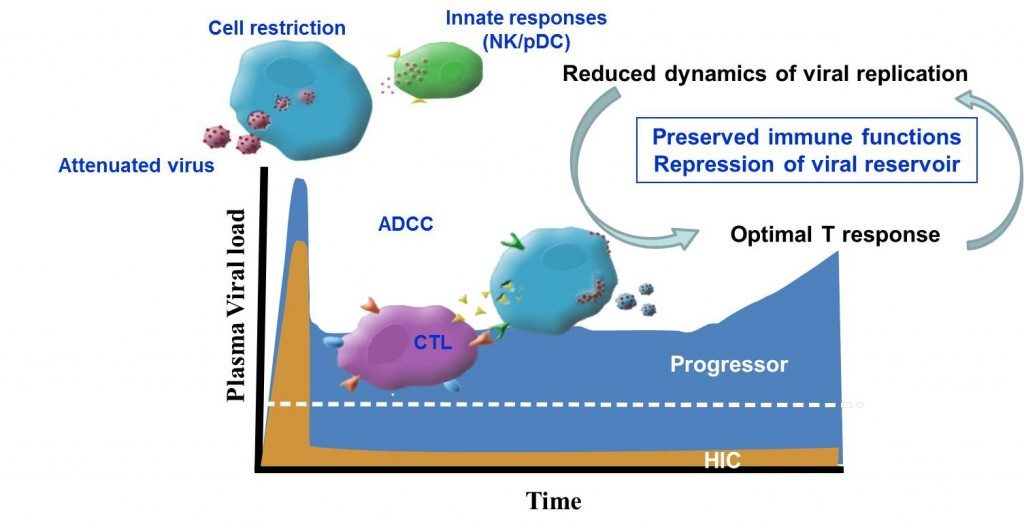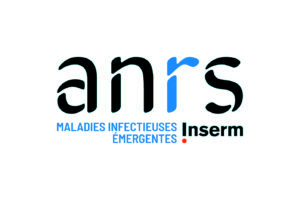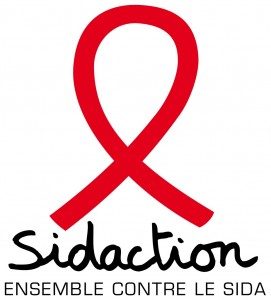Présentation
HIV-controllers (HIC) (also called “elite controllers” or “elite suppressors”) are rare (less than 1%) HIV-infected patients who control viral replication to undetectable levels in the absence of antiretroviral treatment. In the context of the ANRS-CO21 cohort we investigated parameters of control in HICs. Our results support the fact that most HICs are infected with fully replicative-competent HIV-1, implying an active host restraint of viremia. The control of HIV-1 replication in HICs has indeed been associated with a strong, multifunctional specific CD8+ T cell response. Interestingly, we observed that CD8+ T cells from HIV controllers ex vivo effectively suppressed HIV-1 infection without prior stimulation through the elimination of infected CD4+ T cells. Our data suggest that the constitutive antiviral capacity of CD8+ T cells could account for the control of viral replication in these patients. This CD8 T cell anti-viral activity correlated strongly with the frequency of Gag-specific CD8+ T cells. The remarkable spontaneous viral control in these individuals offers a unique model to explore efficient in vivo mechanisms of CD8+ T cell-mediated HIV-1 control and may serve to a better design of vaccination or immune-based therapies. Therefore, we are undertaking new studies with the aim of characterizing the mechanistic parameters of HIV-1 suppression mediated by HIC CD8+ T cells. This study should bring new information on the function and the persistence of the CD8 T cell response in the HIC patients and on its protective role in vivo.
Our studies have also shown that control of viral reservoirs is a key aspect to achieve spontaneous control of infection. We showed that weak reservoirs in HIC were associated to lower susceptibility to HIV infection of the main target cells in these patients. Overall, controlling the dynamics of viral replication during the early phase of infection is critical to limit the establishment of viral reservoirs and allowing an optimal induction of immunity against HIV.







